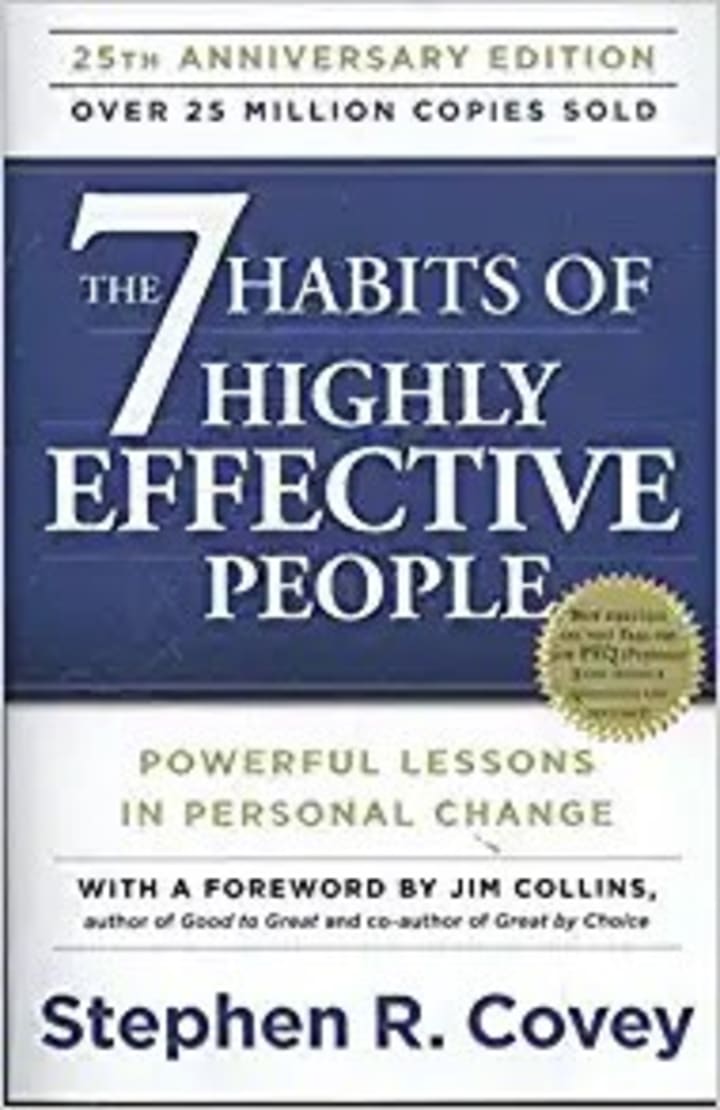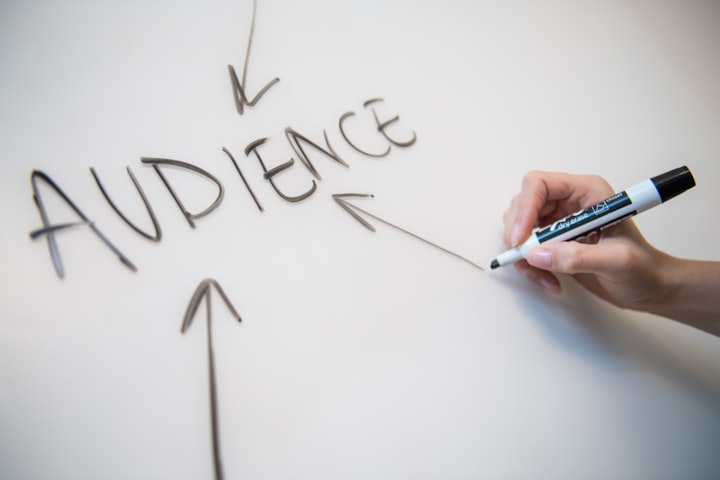Book Review of The 7 Habits of Highly Effective People
The 7 Habits of Highly Effective People: Develop these 7 good habits to make your life go uphill

Introduction of The 7 Habits of Highly Effective People by Stephen R. Covey
In The 7 Habits of Highly Effective People, author Stephen R. Covey presents a holistic, integrated, principle-centered approach for solving personal and professional problems. With penetrating insights and pointed anecdotes, Covey reveals a step-by-step pathway for living with fairness, integrity, service, and human dignity — principles that give us the security to adapt to change and the wisdom and power to take advantage of the opportunities that change creates.
One of the most inspiring and impactful books ever written, The 7 Habits of Highly Effective People has captivated readers for 25 years. It has transformed the lives of Presidents and CEOs, educators, and parents — in short, millions of people of all ages and occupations.
Is a rich person a highly efficient person? Is a person with a happy family a high-performance person? Is a person who owns a listed company a high performer?
Maybe, maybe not. After reading this book, I found that high-performing people have happy families, good relationships, do things without regrets, and can live in peace no matter what the environment is.
Truly effective people know how to listen to others, be respected and respected by others, and can greatly influence others and even the world for the better.
Highly effective people are not only the kind of people want to be, but they themselves learn to keep up with the times.
There is also a passage in “How Steel Is Tempered” that can describe highly effective people, yes, as you think, people feel no regrets when they die, have a sense of happiness, a sense of accomplishment, and a sense of relief for future generations.
Specifically how to do it? Next, we will briefly talk about the seven habits of highly effective people. If you also want to become a highly effective person, this article can give you some useful advice.

About the Author: The 7 Habits of Highly Effective People by Stephen R. Covey
Stephen Richards Covey was the author of the best-selling book, “The Seven Habits of Highly Effective People”. Other books he wrote include “First Things First”, “Principle-Centered Leadership”, and “The Seven Habits of Highly Effective Families” “. In 2004, Covey released “The 8th Habit”. In 2008, Covey released “The Leader In Me — How Schools and Parents Around the World Are Inspiring Greatness, One Child at a Time”. He was also a professor at the Jon M. Huntsman School of Business at Utah State University. You can purchase Stephen R. Covey’s books and audios at http://www.7habitsstore.com
Covey died at the Eastern Idaho Regional Medical Center in Idaho Falls, Idaho, on July 16, 2012, due to complications from a bicycle accident he suffered the previous April.
The 7 Habits of Highly Effective People Book Summary
What is a habit? Stephen Covey said that “habit” is a combination of three things, that is, knowledge, skill, and willingness”.
In layman’s terms, I can do it, I know how to do it, and I want to do it.
What really determines our life is habits, so how difficult is it for a person to change habits? If you can change the first few days or ten days, then it will be easier and easier later.
The 7 Habits of Highly Effective People: Develop these 7 good habits to make your life go uphill.
Habit #1: Be proactive.
What is being proactive? We need to start from a new concept, what is the ultimate freedom of human beings.
Frankel, the author of Living the Meaning of Life, believes that the ultimate human freedom is “no matter when and where you are in any situation, as a human being, you always have the right to choose.”
Stephen Covey also found that “from stimulus to action, there is a big space called choice.” A truly proactive person will not give up the right to choose.
For example, once President Roosevelt’s home was stolen, many friends wrote to him to let him not be sad. His reply was as follows:
I feel fortunate in this matter, they just stole things and didn’t hurt anyone; they only stole some things and didn’t steal everything; he was the one who stole things, not me.
Roosevelt chose such an idea, the thief stealing things would not hurt him, he just chose the right to make himself not sad.
And there are many people in our lives who are not proactive and give up their right to choose. For example, when you were in school, you gave up studying a subject because you didn’t like a teacher, and you left the choice to the teacher.
Stephen Covey said, “You have to be able to insist that you have a choice, and there are four things to support this matter, self-awareness, imagination, conscience, and independent will.” With these four things, you can really do it Do not waive the right to choose.
There is a second definition of being proactive. We have a circle of influence and a circle of concern in our lives. The center part is called the circle of influence, and the outer part is called the circle of concern. The circle of influence is when you do things that can change the surroundings, and the circle of concern is where you can only comment and express opinions, but they are useless.
Throughout the ages, successful people have focused their energy on doing things in the circle of influence. The losers focus their energy on the circle of attention, complaining, scolding, angering, but to no avail.
So being proactive is: first, you have to choose, and second, you must focus on doing things in the circle of influence.
The second habit is to start with the end in mind.
Find the principles of your life, write down your life direction, and set a goal in advance.
Many of us focus on one-sided things, such as only work. These people threw themselves into work and sacrificed their health and family harmony. In the end, even if they made a lot of money, they could not live a good life.
Stephen Covey said that you should never focus on any one-sided thing, you should focus on principles.
“A principle-centered person has a good mind about his choice, no matter what the outcome is, he can focus on it, and he has peace of mind and no fetters in his heart. A principle-centered person always has extraordinary insights and unique thoughts and behaviors. A strong and stable inner core gives them a high sense of security, direction, wisdom, and strength. It will enable them to live a positive and fulfilling life.”
To find the principles of your life, set a goal, and start with the end in mind.
The third habit is to do things first.
Stephen Covey did such an experiment. He invited a woman up and gave her a pile of large stones, each with the words: Family, Health, Leisure, etc. He found a bucket, poured a bunch of small stones into the bucket, and then asked the lady to put the big stones into the bucket. The lady wanted to put the “family”, “health” and other big stones into the bucket, but they couldn’t put them at all. The bucket is full.
Also read: Rich Dad Poor Dad by Robert T. Kiyosaki
Stephen Covey changed the method. He poured out the small stones in the bucket, put the big stones in first, and then poured the small stones in. The result was just right, and all the stones could be put in.
Many people in our lives are occupied by a large number of small stones. We spend a lot of time on Weibo, chasing dramas, playing games, and putting important things to the end. This approach is not desirable.
We should get the important things done and spend the odd time entertaining.
The fourth habit is win-win thinking.
First of all, we need to understand a word called “emotional account”. There are emotional accounts between people. We can not only know how to “withdraw money” in emotional accounts but also know how to “save money” in them.
There are some basic ways that emotional accounts can be invested: “You learn to understand others; you pay attention to social details; keep promises; be clear about your hopes; maintain integrity, apologize, and unconditional love.”
To achieve a win-win situation, we have to trust each other, so emotional accounts are important.
The fifth habit, know the enemy and understand yourself.
You just have to learn to listen. We need to know that loving listening is to be able to express the feelings of the other party at this time, and you do not need to make any judgments.
The counterpart to pleasant listening is the autobiographical response.
Autobiographical responses include value judgments, such as “you’re doing this wrong”; getting to the bottom of things, such as “what’s going on”; being a good teacher, such as “you should do this and you shouldn’t do that”; and One is self-righteousness.
The sixth habit is integration and synergy.
Nature is the most typical result of synergy, all living things combined to play the best effect.
The most important thing to achieve synergy between us and others is to be able to collaborate creatively. You have to drive each other to be creative and communicate together. In order to achieve a good synergy, we must respect differences and achieve creativity in communication.
The seventh habit, keep updating.
We are constantly renewed intellectually, physically, socio-emotionally, and spiritually.
On the intellectual level, you can read and study; on the physical level, you can meditate, eat healthy food, and exercise; on the social-emotional level, you need to join more connections and “save” in emotional accounts with others; Spiritually, you need to have higher cognitive abilities.
Be proactive, start with the end in mind, put things first, win-win thinking, know each other and understand yourself, integrate and synergize, and keep updating. These are the seven habits of highly effective people. Develop these seven good habits to make your life go. uphill road.
Book Review of The 7 Habits of Highly Effective People
Author Stephen R. Covey proposes a very comprehensive and principles-based methodology that can address a variety of personal and workplace problems, known as a classic for personal growth and management.
At first glance, this book seems to have a lot of “I understand the truth and still have a bad life” advice.
But as I grew up, some of the words in the book resonated more and more in my heart and made me constantly reflect and think. Every time I go back and read the author’s meaning again and understand it again, it is a process of “internalizing” my own experience and pain.
To this day, it has even brought me a great sense of peace and well-being in an impetuous environment, and being able to make some decisions with peace of mind and still do me regularly without being “forced” by people or the system what to do.
1. Why many people are successful but unhappy inside
Many people, including myself, have inner anxiety and confusion. Some of them even appear to be very successful on the outside, but they are often miserable inside.
About the Creator
Muhiuddin Alam
I'm Muhiuddin Alam, a blogger and content writer. Explore book recommendations and reviews of fiction, novels, and nonfiction on your trusted site ReadingAndThinking.com. & Geek Book Reviews.com






Comments
There are no comments for this story
Be the first to respond and start the conversation.